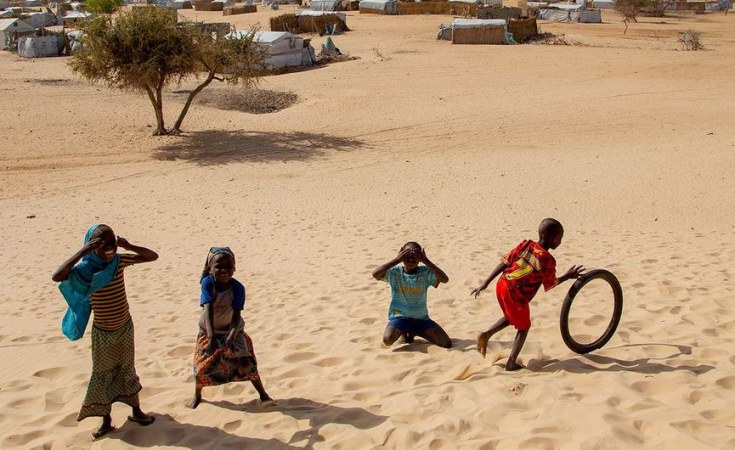The Peacebuilding Commission (PBC) convened for an ambassadorial-level meeting in New York on Friday to tackle the issue of organized crime in the Sahel. Poverty, institutional fragility and massive insecurity have created favourable conditions for the proliferation of organized crime across the vast African region.
The PBC, an intergovernmental advisory body launched in 2006, plays a crucial role in supporting peace efforts in conflict-affected countries.
Consisting of 31 Member States elected from the General Assembly, the Security Council, and the Economic and Social Council, it brings together top donors and troop-contributing countries.
Ambassador Ivan Šimonović of Croatia, Commission Chair, cited the latest UN Secretary-General's report, stating that "the security situation in the Sahel continued to be marked by terrorism and violent extremist groups frequently targeting border areas." The situation has only got worse during this year.
Actively engaged
The PBC has been actively involved in improving conditions across the Sahel , encompassing such countries as Burkina Faso, Cameroon, Chad, Gambia, Guinea, Mali, Mauritania, Nigeria, Niger, and Senegal.
It supports regional peacebuilding priorities and assists in the implementation of the UN Integrated Strategy for the Sahel (UNISS) and its Support Plan. Previous PBC meetings have focused on building climate resilience and addressing climate degradation issues.
With concerns over institutional fragility, weak governance, poverty, border security, population growth, mass migration, and climate change, the Commission is also focused on prevention and resolution of conflicts, violent extremism, and organized crime.
Significant threat
To conflict-affected regions like the Sahel transnational organized crime poses a significant threat. The illegal activities there vary from weapons sales and drug production to migrant smuggling and human trafficking.
The UN Office on Drugs and Crime (UNODC) estimates that illicit economic activities there generate billions of dollars annually, while much of the population lives on less than $2 per day.
Mar Dieye, who heads the UNISS, told UN News in an earlier interview that anti-trafficking and organized crime efforts are issues that have until recently been overlooked.
"With the UN Office on Drugs and Crime (UNODC) threat assessments on transnational organized crime, we've discovered a huge economy that has been in the blind spot among national actors and international partners," he said.
Peacebuilding finance
The leading instrument for investing in peacebuilding is the Secretary-General's Peacebuilding Fund. "The Sahel is a region of high priority to the Peacebuilding Fund, with 35 per cent of its funds allocated to the region in 2022," said Elizabeth Spehar, Assistant Secretary-General for Peacebuilding Support.
She highlighted significant results achieved through the Fund such as cross-border initiatives to support national security cooperation and operations to shut down transnational criminal gangs - between The Gambia and Senegal, and between Mali and Guinea - as well as a project in Burkina Faso to fight organized crime and illicit trafficking.
Peacebuilding Day
The meeting convened on Peacebuilding Day marked annually on 23 June. In a video message Ms. Spehar spoke of the critical need to increase efforts to address root causes of conflict and invest in peacebuilding.
She underscored the significance of the UN's Peacebuilding architecture and highlighted the Secretary-General's proposed New Agenda for Peace, currently under development, as an excellent opportunity to prioritize prevention and peacebuilding.


